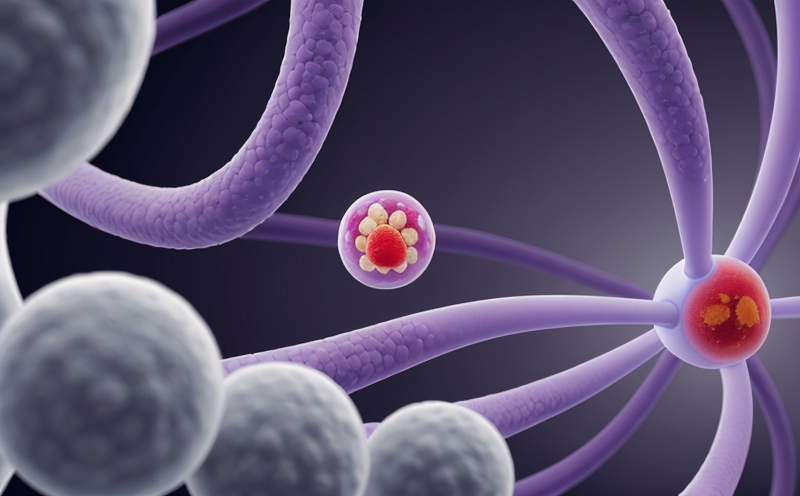Xenograft Tumor Biomarker Testing in Mice
The xenograft tumor biomarker testing in mice is a critical service used to evaluate the efficacy and potential of cancer therapies. This model allows for the study of human tumors in an immunodeficient mouse host, providing insights into the behavior of these tumors under various treatment regimens.
This test is particularly useful because it mimics human tumor biology more closely than traditional cell culture systems or small animal models. It provides a more accurate prediction of clinical outcomes and drug response. The xenograft model can also be used to study metastasis, angiogenesis, and other critical aspects of cancer progression.
Our testing process involves several key steps: first, the selection and preparation of patient-derived tumor samples are crucial. These samples are then implanted into immunocompromised mice. After a period of growth, the tumors are harvested and analyzed for various biomarkers using state-of-the-art instrumentation such as mass spectrometry and flow cytometry.
The data generated from this testing is invaluable in the early stages of drug development, helping researchers to prioritize promising candidates for further clinical trials. It also aids in the identification of novel biomarkers that could be used for early diagnosis or personalized medicine approaches.
One major advantage of our xenograft tumor biomarker testing is its ability to provide a more realistic model of human disease. This increases the translational potential of the data, making it easier to predict clinical outcomes and patient response to therapy. Additionally, this service allows for rapid turnaround times compared to traditional in vivo models, enabling quicker iteration in research and development.
Our laboratory adheres to strict protocols and quality standards to ensure accurate and reliable results. This includes regular calibration of instruments, use of validated reagents, and adherence to international standards such as ISO 17025 for method validation and accuracy.
Applied Standards
| Standard | Description |
|---|---|
| ISO 17025:2017 | International Organization for Standardization standard that sets requirements for the competence of testing and calibration laboratories. |
| ASTM E2583-16 | American Society for Testing and Materials standard defining the practice for performance-based quality assessment programs in laboratory testing and calibration services. |
| EN ISO 9001:2015 | European Union standard specifying requirements for a quality management system to ensure continuous improvement of processes, products, and services. |
Why Choose This Test
The xenograft tumor biomarker testing in mice is an essential tool for cancer research and drug development. The model allows researchers to study the behavior of human tumors under various conditions, providing insights into treatment efficacy and potential side effects.
- Predicts clinical outcomes with higher accuracy than other models.
- Allows for rapid turnaround times compared to traditional in vivo models.
- Mimics human tumor biology more closely, increasing translational potential of the data.
- Enables the study of metastasis and angiogenesis, critical aspects of cancer progression.
The use of this testing model can significantly accelerate drug development processes by identifying promising candidates early in the pipeline. It also aids in the identification of novel biomarkers for diagnosis and personalized medicine approaches.
By choosing our xenograft tumor biomarker testing service, clients gain access to a comprehensive suite of tools and expertise that are essential for successful cancer research and drug development projects. Our commitment to quality and reliability ensures that clients receive accurate and actionable data that can drive informed decision-making in their research programs.
Quality and Reliability Assurance
- We adhere to strict protocols for sample preparation, tumor implantation, and analysis.
- Instrument calibration is performed regularly using standard reference materials.
- Use of validated reagents ensures consistency across all testing runs.
- Data quality is monitored through rigorous internal audits and external accreditation.
We also maintain robust quality control measures to ensure the reliability of our results. This includes regular training for laboratory personnel, participation in proficiency testing programs, and continuous review of methodologies to incorporate new scientific advancements.
Our commitment to quality and reliability is reflected in our adherence to international standards such as ISO 17025:2017, ASTM E2583-16, and EN ISO 9001:2015. These standards ensure that our testing processes are robust, accurate, and consistent.





